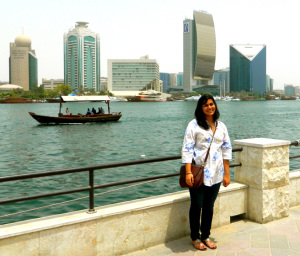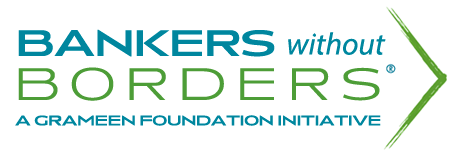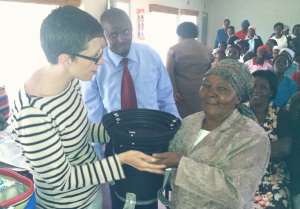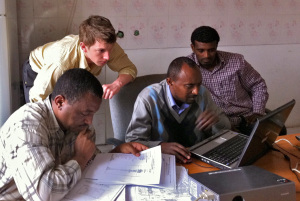Overcoming the Barriers to Fighting Poverty
Ananya Mukkavilli is a Bankers without Borders® (BwB) volunteer who served as an institutional relations intern for Grameen Foundation's External Affairs team in 2012. She is a rising junior at Haverford College, majoring in political science, with a minor in economics. Ananya will spend the next academic year studying international relations at The London School of Economics and Political Science. When I first learned about microfinance, I was a freshman in high school in Bangkok, Thailand. Professor Muhammad Yunus, founder of Grameen Bank, had just won the coveted Nobel Peace Prize, and by happy coincidence I was representing Bangladesh in the Economic and Social Council of our Model United Nations Conference. The subject of microfinance could not be more relevant. I found the idea of microfinance revolutionary. It wasn’t about charity or donations; it was about giving people opportunities to economically sustain themselves, as part of an overall effort to address the ever-increasing global income gap. Cutting poverty in half by 2015 was a big part of the UN’s Millennium Development Goals, and the actors involved were always striving to look at bigger-picture, long-term solutions to poverty. Prof. Yunus had created an effective and simultaneously empowering means of doing just that.
 Bankers without Borders volunteer Ananya Mukkavilli, pictured here during a trip to Dubai's Old Town, discovered some essential truths about fighting poverty when she served as an intern at Grameen Foundation this summer.
Bankers without Borders volunteer Ananya Mukkavilli, pictured here during a trip to Dubai's Old Town, discovered some essential truths about fighting poverty when she served as an intern at Grameen Foundation this summer.

 BwB Director Shannon Maynard (left) presents Seraphina (right), a women's group leader and entrepreneur, with a cook stove that the other group leaders purchased as a thank-you for her wisdom and leadership to them.
BwB Director Shannon Maynard (left) presents Seraphina (right), a women's group leader and entrepreneur, with a cook stove that the other group leaders purchased as a thank-you for her wisdom and leadership to them. David Washer (center) spent a week meeting clients and lending his skills in finance to Eshet, an Ethiopian MFI, as part of BwB’s Financial Modeling Reserve Corps.
David Washer (center) spent a week meeting clients and lending his skills in finance to Eshet, an Ethiopian MFI, as part of BwB’s Financial Modeling Reserve Corps.